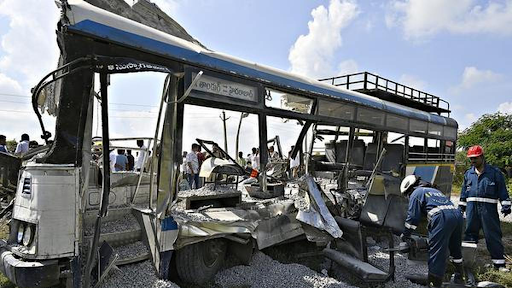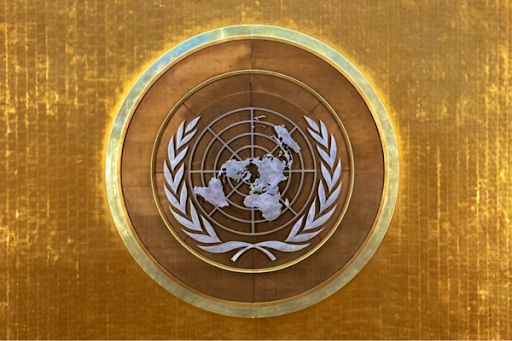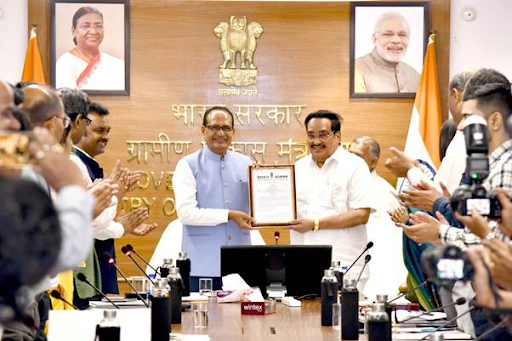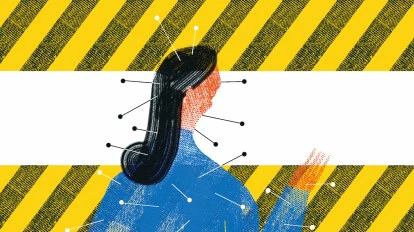Description

Copyright infringement not intended
Picture Courtesy: https://indianexpress.com/article/opinion/columns/witchcraft-accusations-india-9501493/
Context: Accusations of witchcraft persist in India due to societal failures, inadequate legal measures, ignorance, and discriminatory practices targeting women, particularly those with mental health issues or property.
Details
- Accusations of witchcraft and related crimes continue to affect many regions in India. These harmful practices reflect deep-seated societal failures and legal inadequacies.
- Despite significant efforts to address these issues, they persist in various forms, often targeting women. This problem is not unique to India but is a global issue, as highlighted by the UN Human Rights Council's resolution on the elimination of harmful practices related to witchcraft and ritual attacks.
|
United Nations Human Rights Council (UNHRC)
●It is a UN body dedicated to promoting and protecting human rights globally.
●It was established in 2006 to replace the United Nations Commission on Human Rights (UNCHR).
●It investigates human rights violations in member states and addresses issues like freedom of expression, religion, women's rights, LGBT rights, and minority rights.
●It has 47 members elected by the General Assembly for three-year terms, with a limit of two consecutive terms.
●Sessions are held three times a year in March, June, and September, with the option for special sessions to address emergencies or violations.
●The headquarters of the Council are at the United Nations Office at Geneva in Switzerland.
|
Global Context and Indian Scenario
- In July 2021, the UN Human Rights Council adopted a resolution to tackle harmful practices related to witchcraft.
- The UN’s data from 2009 to 2019 showed 20,000 documented cases across 60 countries. While these practices are often associated with Africa, they also occur in the USA, Europe, and India.
- In India, witchcraft-related crimes are documented by the National Crime Records Bureau (NCRB).
-
- In 2022, there were 85 reported murders linked to witchcraft, mainly in states like Chhattisgarh, Madhya Pradesh, Jharkhand, and Odisha.
- Other states, such as Assam, Bihar, and Telangana, have also reported such cases. Although numbers may have slightly declined, these crimes still occur frequently, highlighting an ongoing issue.
Witchcraft Accusations
The term "witch" is historically gender-neutral but is commonly associated with women in many cultures. In Indian contexts, witchcraft is often viewed negatively and is used as a basis for crimes against women. Accusations of witchcraft can arise from several factors:
- Lack of Education and Ignorance: In many regions, people with mental health issues or diseases are labelled as witches due to ignorance and superstition.
- Socio-Economic Factors: Widowed, single, or childless women, especially those owning property, may be targeted as witches to seize their assets. Even educated and young women can be accused due to local vested interests.
- Cultural Depictions: Popular media often portrays witches in a negative light, influencing public perception and perpetuating harmful practices.
|
States' law on witchcraft in India
- In 1999, Bihar became the first state to pass a law targeting witch practices.
- The law defined witches as women believed to possess the power to harm others through black magic, evil eyes, or chants.
- The Prevention of Witch Practices Act of 1999 aimed to prevent the identification of women as witches in Tribal areas and eliminate their torture, humiliation, and killing by society.
- It made it a cognizable and non-bailable offence, with a jail term of up to 3 months or a fine of Rs 1,000 for those who branded women as witches.
- Jharkhand followed suit in 2001, making similar provisions to prevent crimes against women accused of witchcraft. Chhattisgarh also enforced punishment for labelling someone a witch, with a potential 3-year jail term.
- Maharashtra, Odisha, Karnataka, and Assam subsequently passed laws to combat practices related to black magic, witch-hunting, human sacrifices, and other inhumane acts. These laws aim to eliminate the exploitation of superstitions and protect potential victims.
|
Addressing Witch-Hunting Practices
- Education and Awareness: Spreading education and raising awareness are crucial for changing societal attitudes and reducing superstitions.
- NGO and Community Initiatives: Programs like Project Garima in Jharkhand and Project Prahari in Assam aim to restore the dignity of women branded as witches. Community policing and local initiatives can play a significant role.
- Legislative Measures: Specific state legislation addresses witch-hunting, such as the Prevention of Witch (Daain) Practices Act in Bihar, Jharkhand, and other states. These laws are relatively recent and reflect the need to address this issue through legal means.
Challenges in Legislation
- Scope of Laws: Some laws, like those in Odisha and Maharashtra, penalize both witch-hunting and the practice of witchcraft, which can lead to confusion and misuse.
- Enforcement Issues: Low prosecution and conviction rates, coupled with ineffective penalties, erode the effectiveness of these laws.
- Legislative Intent: The intent of some laws is unclear or broad, leading to inconsistent application and enforcement.
Recommendations for Improvement
- Refine Reporting and Legislation: The NCRB should include separate categories for crimes related to witchcraft and witch-hunting. The Indian Penal Code (IPC) should also address these issues with specific sections.
- Police and Legal Reforms: Effective police reforms and a streamlined criminal justice system are necessary for better implementation of laws and protection for victims.
Conclusion
- Accusations of witchcraft in India are a serious issue that reflects deeper societal and legal problems. Despite efforts through education, community initiatives, and legislation, the problem persists. Addressing it requires a comprehensive approach involving legal reforms, effective enforcement, and societal change.
Source:
Indian Express
Wikipedia
Wikipedia
|
PRACTICE QUESTION
Q. Evaluate the role of education and awareness programs in mitigating superstitious beliefs in India. What specific strategies could be employed to address deep-rooted superstitions and their impact on community health and safety?
|











